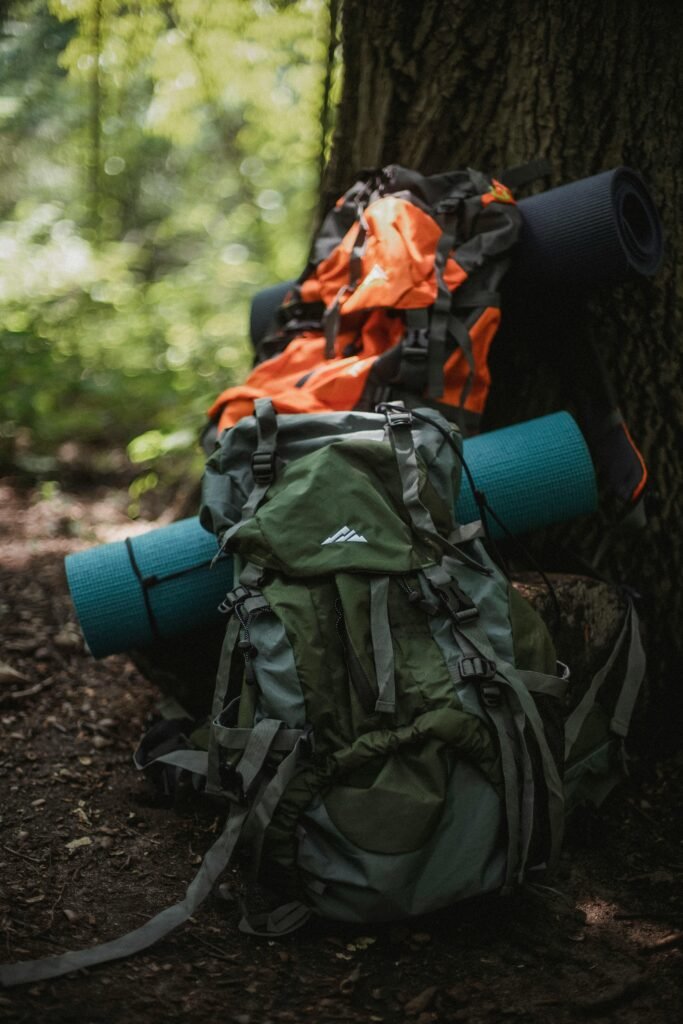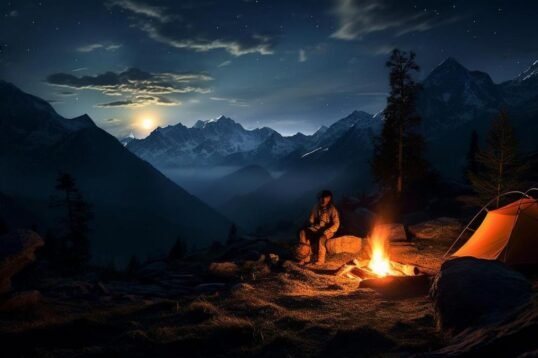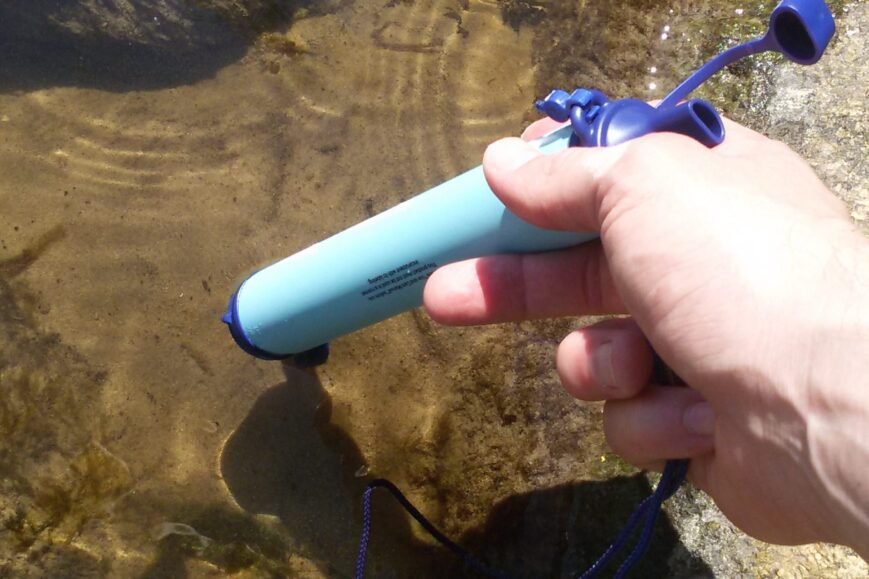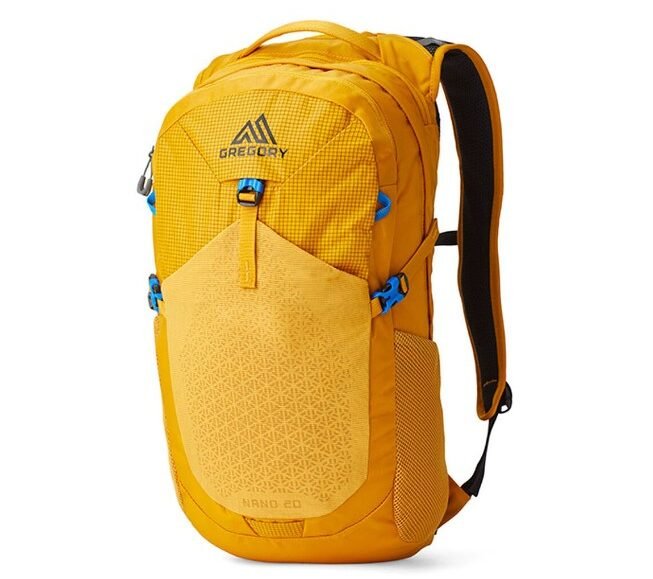Embarking on an overnight hike is an exhilarating adventure that immerses you in nature’s beauty while testing your physical endurance. To make the most of your experience, proper packing is essential. This guide will walk you through the process of packing for an overnight hike, ensuring you have the necessary gear and valuable tips to enhance your outdoor escapade. So lace up your boots, grab your backpack, and let’s get started!
TL;DR
- Proper packing is essential for an overnight hike to enhance your outdoor experience.
- Assess your hiking destination, weather conditions, terrain, and trip duration to determine necessary gear.
- Invest in a quality backpack that fits well and distributes weight evenly.
- Consider brands like Osprey, Deuter, Gregory, Lowe Alpine, Karrimor, and Quechua for backpack options.
- Choose moisture-wicking and breathable clothing, layering for changing weather conditions.
- Pack a lightweight and durable tent, sleeping bag, sleeping pad, and pillow for a good night’s sleep.
- Bring a compact and lightweight cookset, stove, fuel, and food for cooking meals.
- Ensure safe drinking water with a water filter or purification tablets, water reservoir or bottles.
- Carry navigation aids like a map, compass, GPS device, guidebook, or trail notes.
- Don’t forget personal care items, first aid kit, sun protection, insect repellent, and medications.
- Pack safety and emergency gear such as a headlamp, whistle, emergency shelter, fire starter, multi-tool, and PLB.
- Use compression bags or stuff sacks to maximize space and keep gear organized.
- Place heavier items closer to your back for better weight distribution.
- Keep frequently used items easily accessible and test gear before the hike.
- Consider the weather forecast before embarking on your hike.
Assessing Your Needs
Before you pack, it’s crucial to assess your hiking destination, weather conditions, terrain, and the duration of your trip. Understanding these factors will help you determine the necessary gear and pack accordingly. Additionally, consider your personal preferences and comfort level when selecting equipment.
Choosing the Right Backpack
Investing in a quality backpack is vital since it will carry all your gear throughout the hike. Look for a backpack that fits well, distributes weight evenly, and has adjustable straps for a comfortable fit.
Consider the backpack’s capacity, keeping in mind the duration of your hike and the gear you’ll be carrying. If you’re traveling light, you can probably pull off an over-nighter with a 20-liter or 30-liter backpack. You’ll have to have a clear picture of the gear you’ll need to carry.
Need A New Backpack?
If you’re not sure what brand to go with, here’s a short list of brands I trust the most. Some are more expensive, and some are available at a reasonable price for budget-conscious hikers.
- Osprey: Osprey is well-regarded for its innovative designs, durability, and comfort. They offer a wide range of backpacks suitable for various hiking adventures, including overnight hikes. To be completely honest this is my favorite brand for long-distance packs.
- Deuter: Deuter is a German brand known for its high-quality backpacks that prioritize comfort, functionality, and durability. They offer a range of backpack sizes and styles to meet different hiking needs.
- Gregory: Gregory is recognized for its backpacks’ excellent fit, comfort, and load-carrying capabilities. They provide backpacks designed specifically for different hiking activities, including overnight hikes.
- Lowe Alpine: Lowe Alpine is a reputable brand that has been producing quality backpacks for outdoor enthusiasts since 1967. Their backpacks are known for their durability, innovative features, and comfort.
- Karrimor: Karrimor is a British brand with a long history of producing hiking backpacks. They offer a range of backpacks suitable for different hiking needs, known for their durability and value for money. Wider availability through Europe.
- Quechua: Quechua is the hiking and outdoor brand of Decathlon, offering affordable and reliable backpacks. They provide a variety of backpack options suitable for different hiking durations and terrains. This is another brand you’re more likely to come across in Europe.
- And if you’re looking for a decent backpack on a budget, there are other packs online from lesser-known brands such as Naturehike, Mountain Top, New Outlander, AI One, Jungle King, and Nevo Rhino.
Clothing and Layering
Selecting the right clothing is crucial for comfort and safety during an overnight hike. Opt for moisture-wicking and breathable materials that dry quickly. Layering is key for adapting to changing weather conditions. Essential clothing items include:
- Base Layer: Choose a lightweight and moisture-wicking fabric such as merino wool or synthetic materials.
- Insulating Layer: Pack a warm fleece or down jacket to retain body heat during colder nights.
- Outer Layer: A waterproof and windproof jacket will protect you from rain and harsh winds.
- Hiking Pants: Opt for durable, quick-drying pants that provide mobility and protection against brush and rocks.
- Extra Socks: Pack a few pairs of moisture-wicking socks to keep your feet dry and prevent blisters.
- Hat and Gloves: Depending on the weather, bring a hat and gloves to protect your extremities from the cold.
Shelter and Sleeping Gear
A good night’s sleep is crucial to recharge for the next day’s hike. Consider the following items for shelter and sleeping arrangements:
- Tent: Choose a lightweight and durable tent suitable for the number of hikers. Look for quick setup options and good ventilation.
- Tarp: If the weather is permissive, and you want to cut down on weight, a good weather-resistant tarp is a great choice. Just keep in mind, that it provides less shelter than a tent you can zip yourself up inside.
- Sleeping Bag: Select a sleeping bag appropriate for the expected temperature range. Consider the insulation type (down or synthetic) based on weather conditions.
- Sleeping Pad: An inflatable or foam sleeping pad provides insulation and cushioning for a comfortable night’s sleep.
- Pillow: A compressible pillow offers added comfort and support.

Cooking and Eating Equipment
Preparing meals and staying hydrated is essential during an overnight hike. Pack the following kitchen items:
- Stove and Fuel: Choose a lightweight and efficient backpacking stove along with the appropriate fuel for cooking meals. Don’t forget a windscreen.
- Cookware: Opt for a compact and lightweight cookset that includes a pot, pan, and utensils. You may want to consider spending a little more money on a top-quality lightweight pan that your dinner won’t stick to.
- Food and Snacks: Pack dehydrated meals, energy bars, nuts, and other lightweight, non-perishable food items.
- Water Bottles: Carry durable water bottles or a hydration bladder with sufficient capacity to stay hydrated throughout the hike. Soft flasks and collapsible bottles are a great way to reduce gear mass once empty.
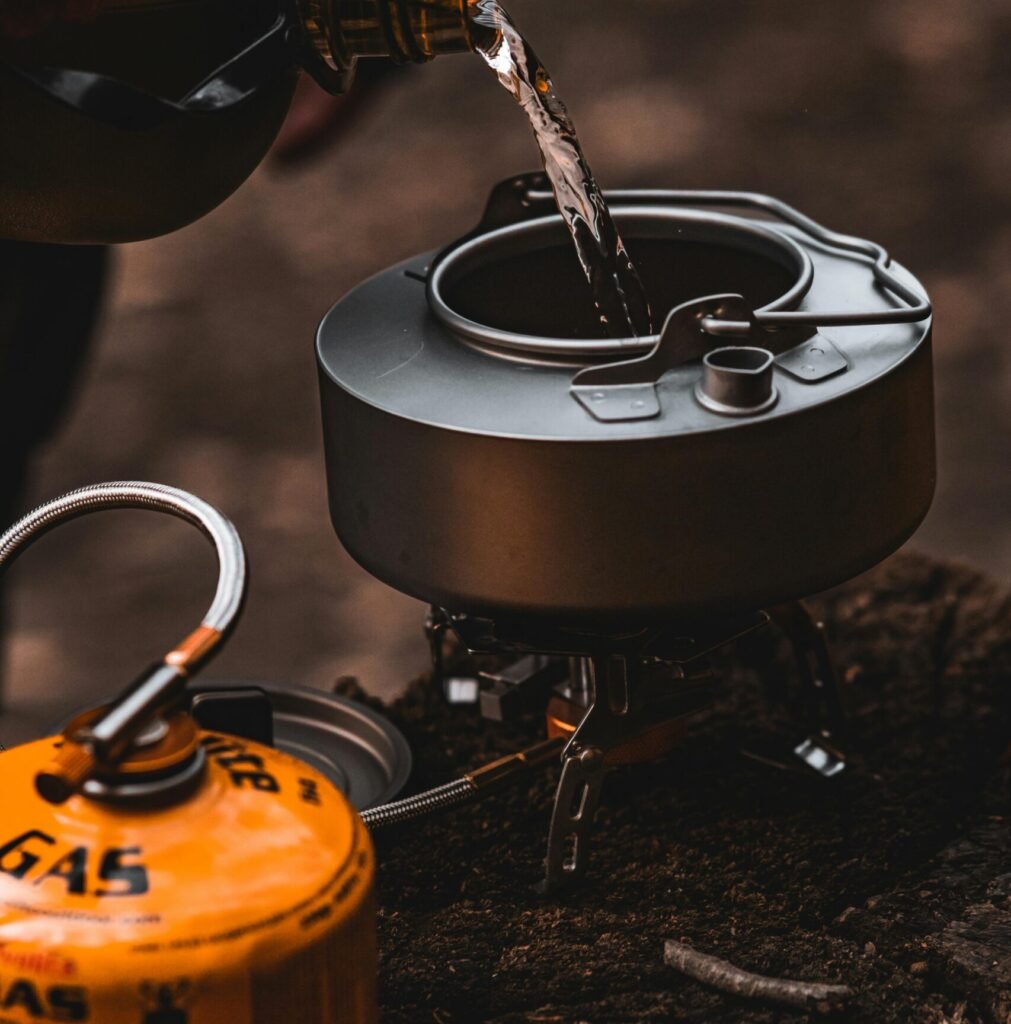
Hydration and Water Treatment
Safe drinking water is crucial while hiking. Ensure you have the means to purify water from natural sources. Consider the following items:
- Water Filter or Purification Tablets: Choose a reliable water filter or purification tablets to eliminate harmful bacteria and parasites.
- Water Reservoir or Bottles: Carry a reservoir or multiple bottles to store and carry water. Consider a capacity that meets your hydration needs between water sources.
- Water filtration system: Pick up a fairly inexpensive LifeStraw disposable drinking filter for the trip, or a reusable system like one from Katadyn, LieStraw, Sawyer, or Platypus.
Navigation Aids
Staying on the right path is essential for a successful hike. Depending on the complexity of your route, pack the following navigation aids:
- Map and Compass: Carry a detailed topographic map and a compass to navigate through unfamiliar terrain.
- GPS Device: Use a GPS device or smartphone app with offline maps as a backup for navigation.
- Guidebook or Trail Notes: If available, bring a guidebook or trail notes with information about the hike, landmarks, and potential hazards.
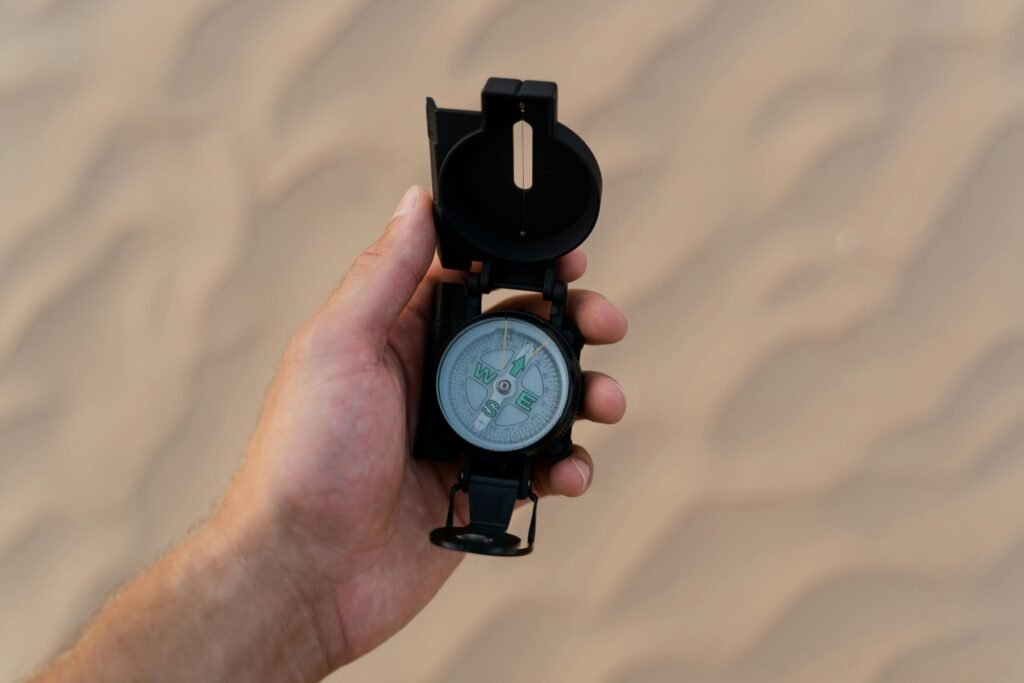
Personal Care Items
Maintaining personal hygiene and addressing basic medical needs are crucial during an overnight hike. Pack the following personal care items:
- Toiletries: Carry travel-sized items such as a toothbrush, toothpaste, biodegradable soap, and toilet paper. Also, a small pack of wet wipes can be a lifesaver when you’re in the middle of nowhere.
- First Aid Kit: Include essential items such as bandages, antiseptic ointment, pain relievers, blister treatment, and any necessary prescription medications.
- Sun Protection: Pack sunscreen, sunglasses, and a wide-brimmed hat to protect yourself from harmful UV rays.
- Insect Repellent: Depending on the location and season, bring insect repellent to ward off mosquitoes and other biting insects.
- Hand Sanitizer: Keep a small bottle of hand sanitizer for maintaining cleanliness, especially before meals.
- Medications: Don’t forget any prescription meds or allergy relief aids if you need them.
Safety and Emergency Gear
Being prepared for unexpected situations is crucial for your safety. Pack the following safety and emergency gear:
- Headlamp or Flashlight: Carry a reliable headlamp or flashlight with extra batteries for navigating in low-light conditions.
- Whistle: A whistle can be used to signal for help in case of an emergency.
- Emergency Shelter: Consider carrying an emergency bivy or lightweight tarp as a backup shelter option.
- Fire Starter: Pack waterproof matches, a lighter, or a fire starter kit for emergency fire-making.
- Multi-tool: A versatile multi-tool can come in handy for various tasks and repairs.
- Personal Locator Beacon (PLB): In remote areas, consider carrying a PLB for emergency communication and rescue.
Packing Pro Tips
- Minimize Redundancy: Avoid packing duplicate items or unnecessary extras. Opt for multi-purpose gear whenever possible.
- Use Compression Bags: Utilize compression bags or stuff sacks to maximize space and keep gear organized.
- Pack Heavier Items Close to Your Back: Place heavier items, such as food and cooking equipment, closer to your back for better weight distribution.
- Keep Essentials Accessible: Store frequently used items, such as snacks, water bottles, and rain gear, in easily accessible pockets or compartments.
- Test Gear Beforehand: Familiarize yourself with your gear and test it before the hike to ensure everything is in working order.
- Distribute Weight Properly: Distribute weight evenly in your backpack to maintain balance and avoid strain on your back and shoulders.
- Consider the Weather: Check the weather forecast before your hike and adjust your gear accordingly. Pack extra layers or rain gear if needed.
Conclusion
Packing for an overnight hike requires careful consideration of your needs, the terrain, and the weather conditions. By selecting the right gear and following the pro tips mentioned in this guide, you can ensure a comfortable and safe hiking experience. Remember to pack efficiently, prioritize essential items, and test your gear beforehand. With proper preparation, you’ll be ready to embark on an unforgettable overnight adventure in the great outdoors. Happy hiking!
![]()

